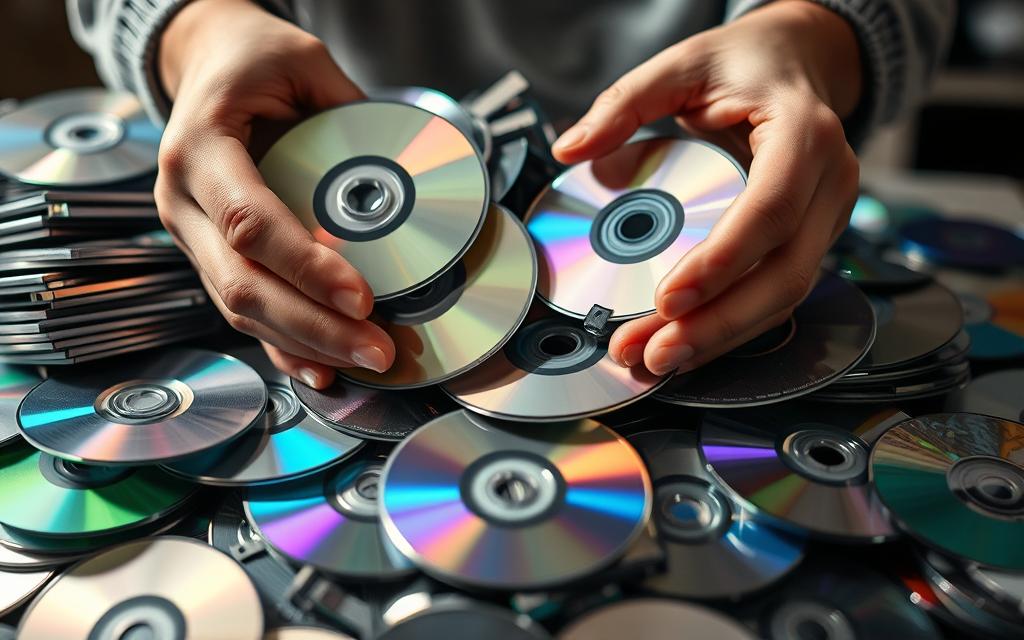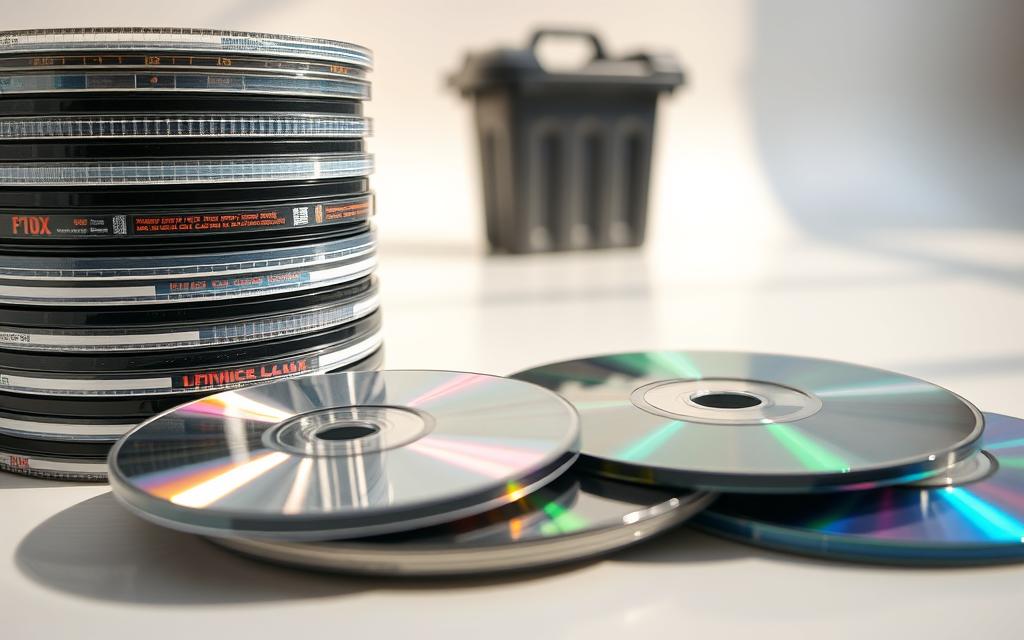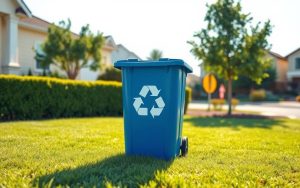With the rise of streaming services, physical media like CDs and DVDs have become less common. Many households now have stacks of these items collecting dust. While they may seem outdated, their disposal requires careful consideration.
These discs are made of polycarbonate, a type of plastic, along with aluminum and gold. This mix of materials makes them difficult to process through standard curbside programs. Improper disposal can lead to long-term environmental harm.
When thrown in landfills, they persist for decades, releasing toxic fumes if burned. Specialized programs and creative reuse options offer better solutions. Addressing this issue is urgent, as no state currently bans disc disposal.
Why Recycling DVDs and CDs Matters
The environmental footprint of CDs and DVDs is more significant than many realize. These items, often stored away or discarded, contribute to a growing waste problem. Their unique composition makes them difficult to process, leading to long-term environmental harm.
The Environmental Impact of Disc Waste
Polycarbonate, the primary material in CDs and DVDs, takes over 500 years to decompose in landfills. This persistence means these items remain in the environment for centuries, occupying space and releasing harmful substances as they degrade. When incinerated, polycarbonate emits hydrochloric acid, sulfur dioxide, and dioxins, which are toxic to both humans and ecosystems.
Additionally, the degradation of these plastics can release BPA into soil and water. BPA is a chemical linked to reproductive issues, heart disease, and diabetes. This leaching poses significant health risks to communities near landfills.
Health Risks Associated with Improper Disposal
Improper disposal of CDs and DVDs not only harms the environment but also endangers human health. BPA, a component of polycarbonate, can contaminate groundwater and soil. This contamination has been shown to interfere with reproductive processes in animals and is associated with cardiovascular disease in humans.
In contrast, the cases for these discs are often made of polypropylene, a #5 plastic that is widely accepted by recycling programs. Paper inserts are also recyclable, highlighting the importance of separating components for proper disposal.
| Component | Material | Recyclability |
|---|---|---|
| Discs | Polycarbonate | Non-recyclable in most programs |
| Cases | Polypropylene | Widely recyclable |
| Inserts | Paper | Recyclable |
According to the EPA, e-waste, including physical media, is growing at an alarming rate. Proper disposal and recycling of these items are essential to mitigate their impact on the planet and public health.
Step-by-Step Guide on How to Recycle DVDs and CDs
Recycling CDs and DVDs requires specific steps to ensure eco-friendliness. These items are made of materials that need special handling. Following a structured process helps reduce their environmental impact.

Understanding the Materials: CDs, DVDs, and Their Components
CDs and DVDs are composed of polycarbonate, aluminum, and sometimes gold. This mix makes them unsuitable for standard curbside recycling. Separating the components is the first step in responsible disposal.
Cases are often made of polypropylene, a widely recyclable plastic. Paper inserts can also be recycled. Proper sorting ensures each material is processed correctly.
Finding Local Recycling Centers and Programs
Local recycling centers often accept CDs and DVDs. Tools like Earth911’s ZIP search help locate nearby drop-off points. Many programs partner with organizations like the CD Recycling Center of America.
Municipal e-waste events are another option. These events provide a convenient way to dispose of unwanted discs. Always check schedules and guidelines before participating.
Mail-In Recycling Options for Discs
Mail-in services like GreenDisk offer an easy solution. They charge a fee based on weight, typically $0.75 per pound. Prepaid labels from the CD Recycling Center of America simplify the process.
These services repurpose discs into new products, such as auto parts. This reduces waste and supports sustainable manufacturing.
| Service | Cost | Process |
|---|---|---|
| GreenDisk | $0.75/lb | Mail-in with prepaid labels |
| CD Recycling Center | Free | Drop-off or mail-in |
| Earth911 | Free | Local drop-off finder |
Remember, placing discs in curbside bins can contaminate recycling facilities. Always use designated programs for proper disposal.
Creative Ways to Reuse Old DVDs and CDs
Old CDs and DVDs can find new life through creative reuse. Instead of tossing them, consider turning them into functional or decorative items. This approach not only reduces waste but also adds a personal touch to your home or garden.
DIY Projects and Craft Ideas
Transform unwanted discs into unique creations. Use them to make garden mobiles, reflective pest deterrents, or even mosaics. For more inspiration, check out these DIY ideas that turn old CDs into art.
Jewel cases can also be repurposed. Turn them into first aid kits, Raspberry Pi cases, or even small storage containers. With a little creativity, these items can serve new purposes.
Donating Discs to Schools, Libraries, and Nonprofits
Classical or educational titles are often welcomed by libraries. According to the American Library Association, 82% of libraries still maintain CD collections. Donating these items supports community resources.
Nonprofits like Goodwill also accept discs. In 2023, they resold over 310,000 items, funding job training programs. Your donation can make a difference.
Selling Used CDs and DVDs Online
Platforms like Decluttr and eBay offer easy ways to sell unwanted media. Decluttr pays between $0.10 and $5 per disc, while collectible titles can fetch higher prices on eBay.
For bulk sales, services like Bonavendi provide appraisals. Selling your old CDs and DVDs not only declutters your space but also puts cash in your pocket.
Conclusion
Finding sustainable solutions for outdated media is more important than ever. Services like Earth911, GreenDisk, and Decluttr offer practical ways to handle unwanted discs. These methods not only reduce waste but also contribute to a $2.1B secondary media market.
Prioritizing reuse over landfill is essential, even if local recycling options are limited. The CD Recycling Center’s ZIP tool makes it easy to locate nearby drop-off points. Taking action today can reduce future e-waste cleanup costs by 40%.
Ethical disposal protects the environment and supports sustainable practices. By choosing responsible methods, you help minimize the impact of old cds and other physical media on our planet.







